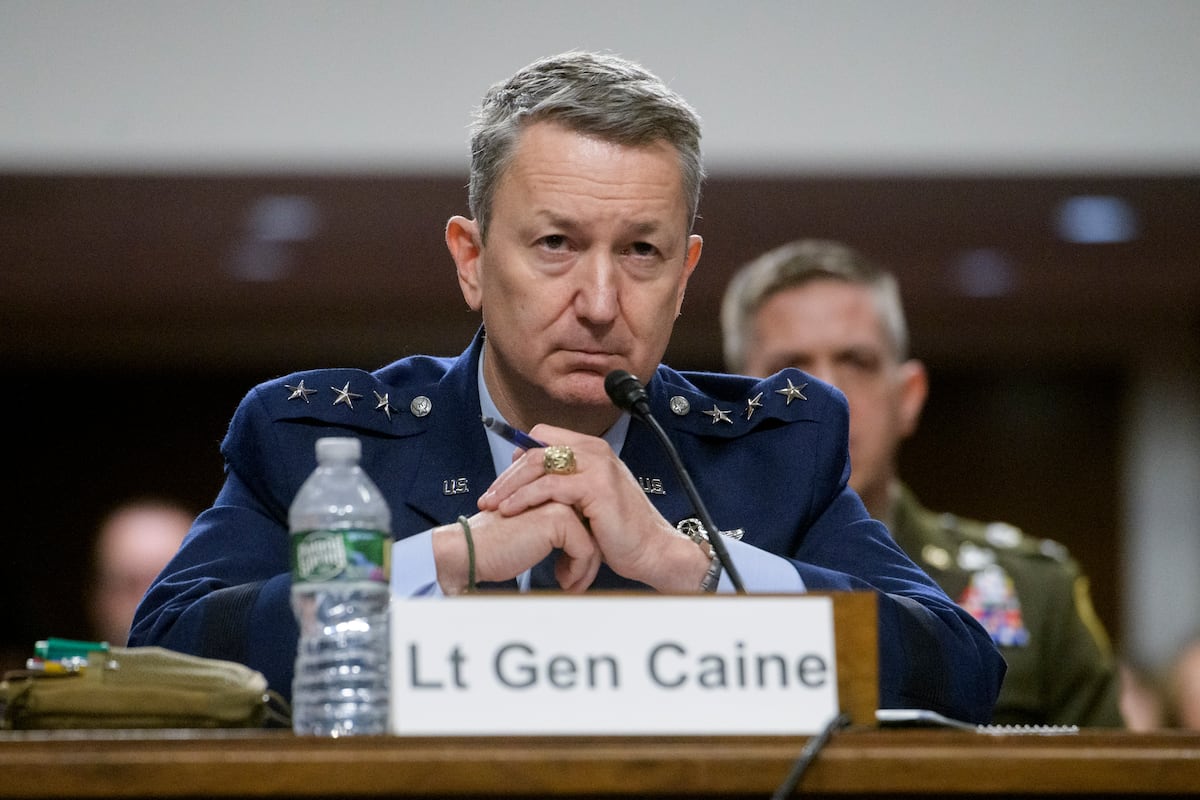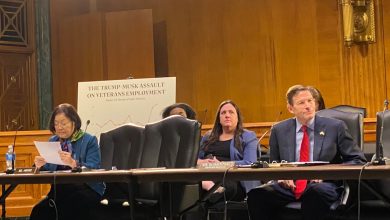Retired Lt. Gen. Dan Caine, President Donald Trump’s pick to be the nation’s highest-ranking military officer, sought to reassure lawmakers Tuesday that he would avoid political interference and was qualified for the job, despite having a resume unlike anyone previously tapped for the position.
“I acknowledge that I am an unconventional nominee,” Caine said. “These are unconventional times.”
In a confirmation hearing before the Senate Armed Services Committee, the general faced repeated questions over his fitness to lead the Joint Chiefs of Staff and how he was even nominated.
Trump tapped Caine in February after firing the previous chairman, Gen. CQ Brown, who was little more than a year into a four-year term. Defense Secretary Pete Hegseth also fired other top officers, including Chief of Naval Operations Adm. Lisa Franchetti and Air Force Vice Chief of Staff James Slife.
The mass dismissals had no precedent and have worried many Democrats that the president was forcing politics into the military. Hegseth previously suggested both Brown and Franchetti, the first Black and female officers to hold their respective posts, were overly concerned with diversity or unqualified for their positions.
“With all due respect to you, we should not be here today. This hearing is happening only because of the unprecedented dismissal without cause of General Brown,” Sen. Mazie Hirono, D-Hawaii, said Tuesday.
Senators from both parties described Brown’s firing as “unfortunate,” though they acknowledged that Caine had no role in the decision.
RELATED
Adding to those concerns was Caine’s own nomination. The general had previously held top posts leading U.S. special operations and advising the Central Intelligence Agency’s director on military affairs. But he had since retired and lacked the seniority required by law to be the chairman of the Joint Chiefs, which the president can waive in cases of pressing national security need.
Even more concerning to some senators was a story Trump previously related about Caine donning a red hat branded with Trump’s “Make American Great Again” campaign slogan and expressing political support in front of U.S. troops during a 2018 visit to Iraq.
Caine denied the story in his hearing Tuesday, suggesting the president may have been referencing someone else.
“I’ve never worn any political merchandise or said anything to that effect,” Caine said.
Senators asked repeatedly whether he would remain candid while providing the best military advice to the president, the chairman’s most important function. Democrats, in particular, pressed the general about whether he would do so in the face of displeasure from the president, which caused friction with past chairmen in Trump’s first term.
Retired Gen. Mark Milley, in particular, fell out with Trump in 2020 after a controversial appearance in Lafayette Square outside the White House, where law enforcement had aggressively cleared out protesters. Milley later said he regretted the appearance, and he criticized Trump after the president left office.
Trump, in turn, removed Milley’s portraits from the Pentagon and cut his security detail.
Caine also faced multiple questions about the administration’s use of Signal, a commercial messaging app, to plan military strikes on Yemen. Top national security officials discussed the attacks while mistakenly including a journalist on the chat. Hegseth also sent highly sensitive attack plans to the group, detailing U.S. strikes before they occurred.
Caine avoided commenting directly on the chat, which he described as “political.” But he said that he would avoid sharing classified information on improper formats if confirmed.
“We should always preserve the element of surprise,” Caine said.
Noah Robertson is the Pentagon reporter at Defense News. He previously covered national security for the Christian Science Monitor. He holds a bachelor’s degree in English and government from the College of William & Mary in his hometown of Williamsburg, Virginia.
Read the full article here





